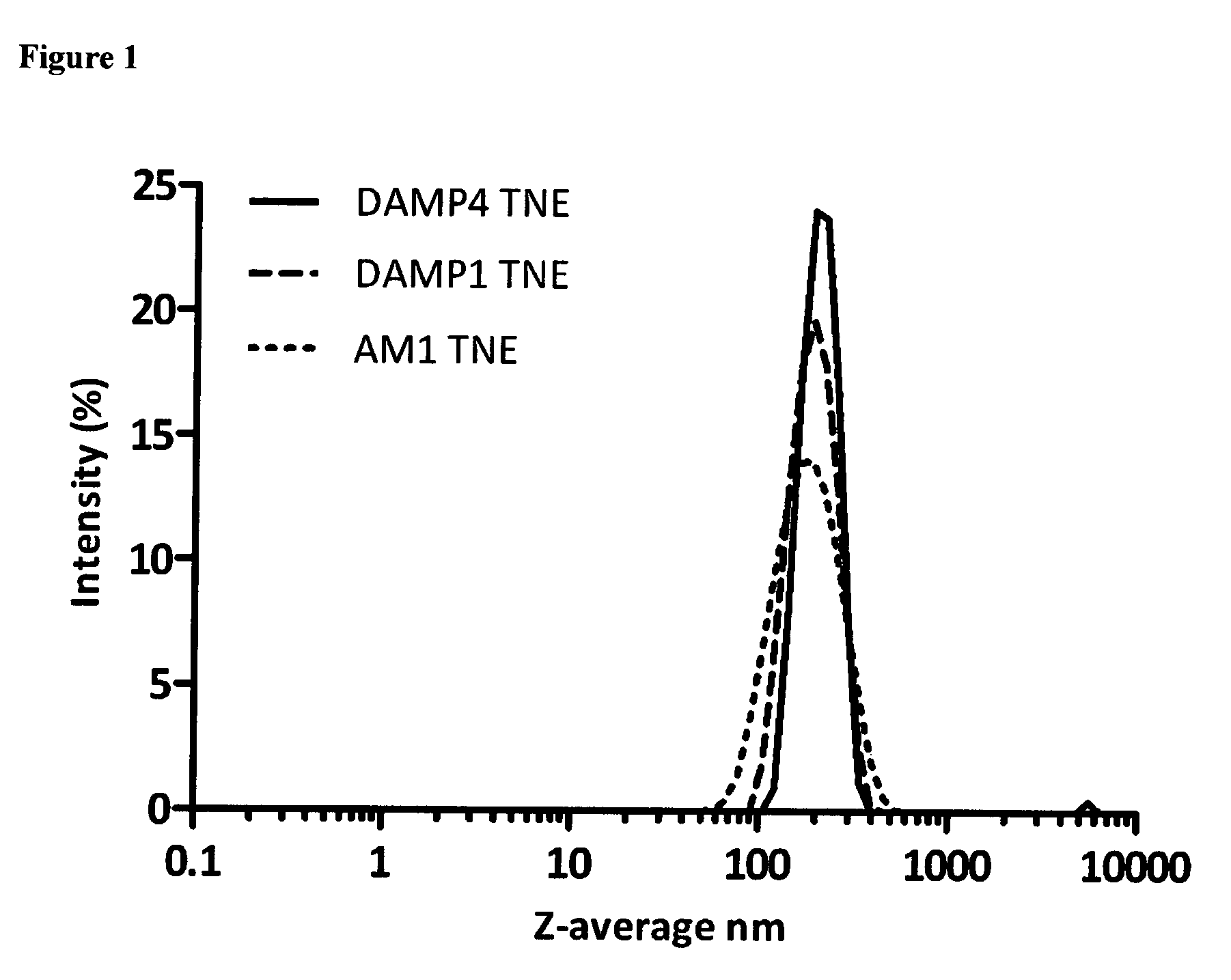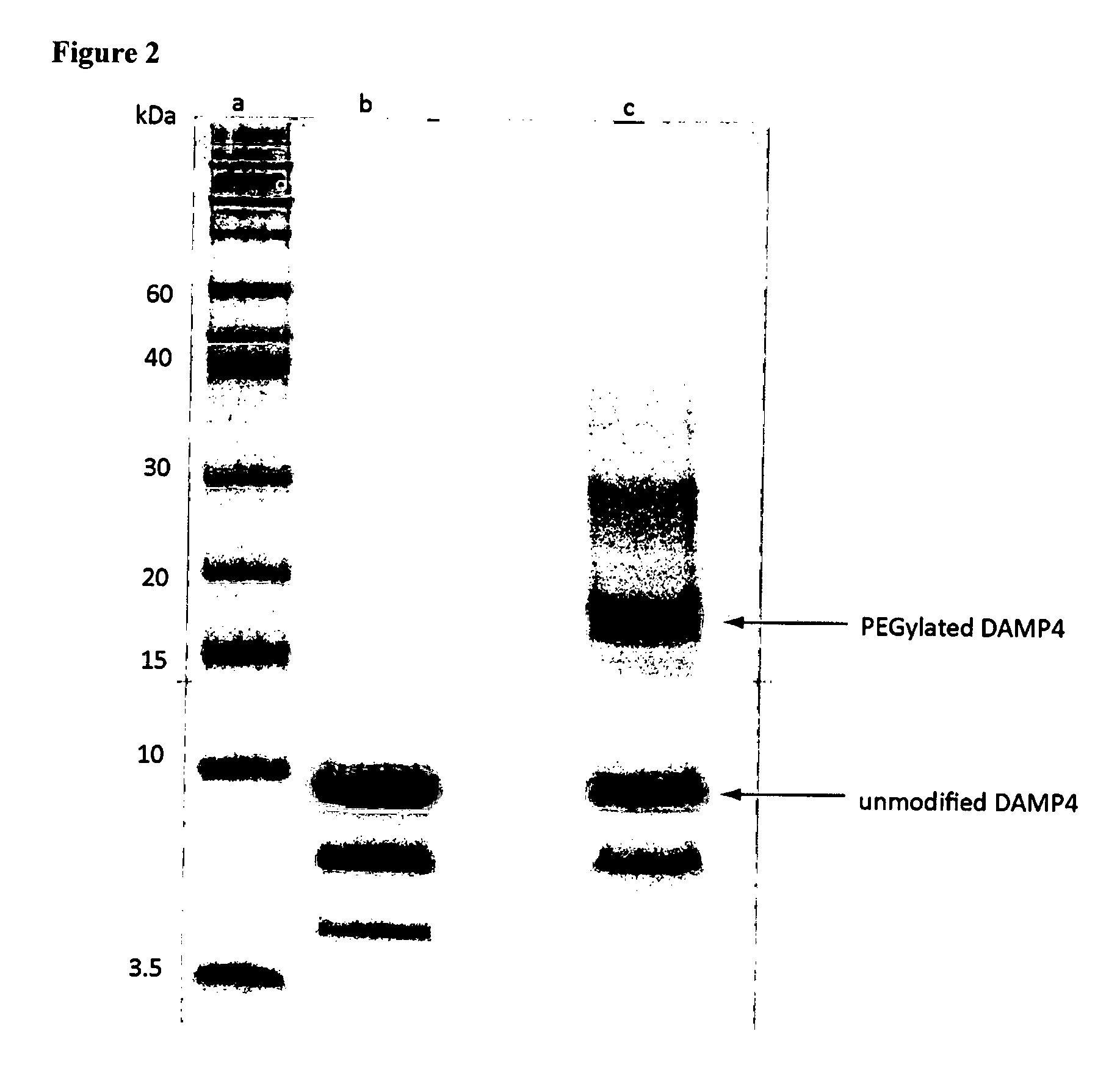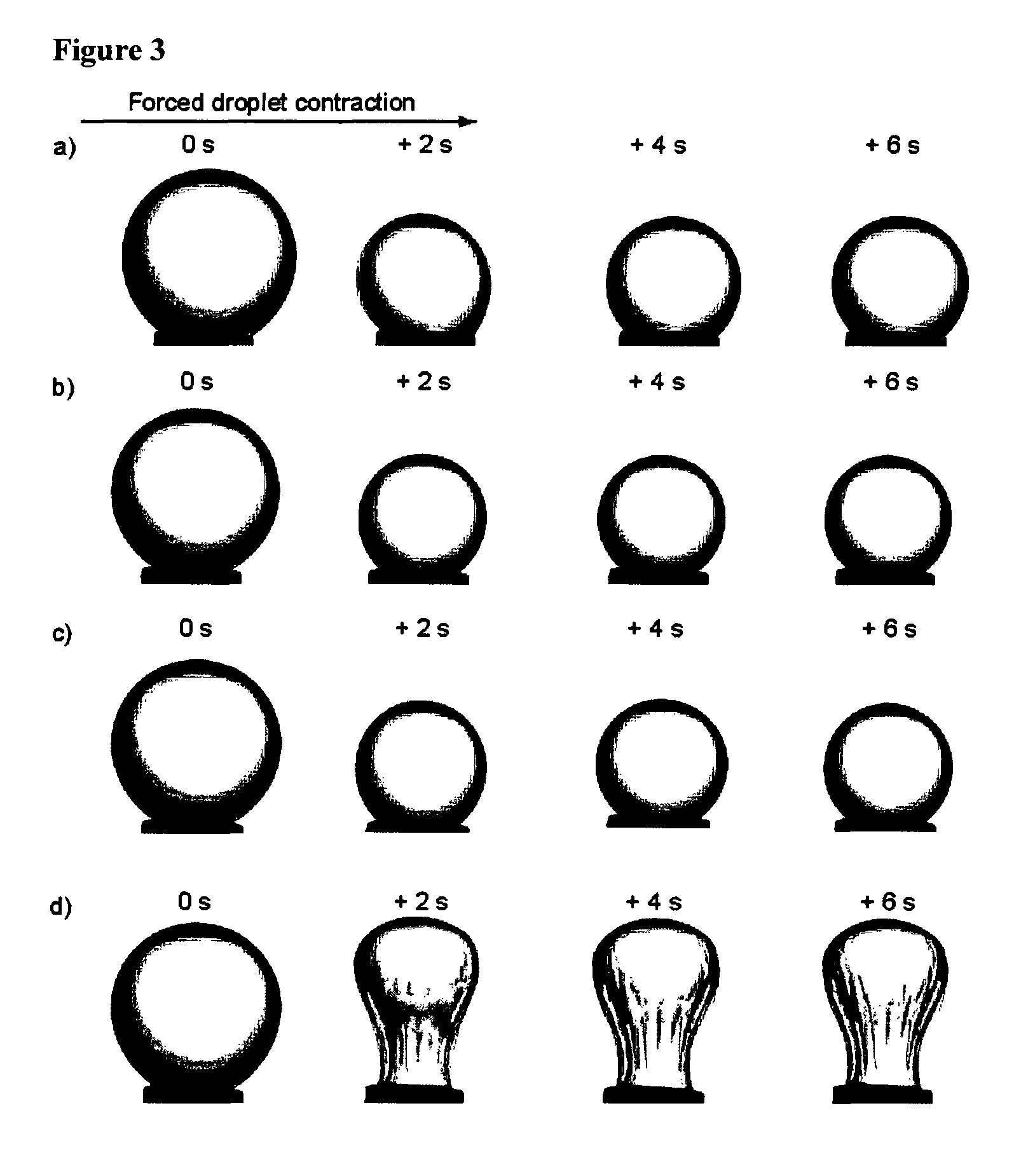Nanoemulsions
a technology of nanoemulsions and nanoemulsions, which is applied in the field of nanoemulsions, can solve the problems of complex polymer architectures such as dendrimers, difficult to define and characterize polydisperse structures, and lack of safe in vivo use, so as to improve the pharmacokinetic and/or targeting properties of nanoemulsions, the effect of easy preparation
- Summary
- Abstract
- Description
- Claims
- Application Information
AI Technical Summary
Benefits of technology
Problems solved by technology
Method used
Image
Examples
example 1
Preparation of the Peptide of SEQ ID NO:32 (DAMP4)
1. DAMP4 Expression
[0306]Protein surfactant SEQ ID NO:32 (also referred to as DAMP4) sequence was cloned into pET48b vector and expressed in E. coli with high expression and solubility. Briefly, DAMP4 was expressed as a soluble protein in E. coli BL21 (DE3). Glycerol stock of the transformed cells was streaked onto an LB plate (15 g L−1 agar, 10 g L−1 peptone, 5 g L−1 yeast extract, 10 g L−1 NaCl) containing kanamycin sulphate (50 mg L−1). A single colony from the plate was inoculated into 10 mL LB media (10 g L−1 peptone, 5 g L−1 yeast extract, 10 g L−1 NaCl) and incubated for 16 h at 37° C. as a seed culture. 400 μL of seed culture was inoculated into 400 mL LB media containing 50 mg L−1 of kanamycin and incubated at 37° C. in an orbital shaker (BioLine, Alexandria, Australia) at 180 rpm.
[0307]When the OD600 reached 0.5, cultures were induced with 0.1 mM isopropyl β-D-1-thiogalactopyranoside (IPTG) (AMRESCO®, Solon, US) and incubat...
example 2
Preparation and Characterization of Nano-Scale Emulsions
[0309]Miglyol 812 was a gift from Sasol (Rosebank, Johannesburg, South Africa). Peptide of SEQ ID NO:1 (also referred to as AM1) (MW 2473.9, >95% purity by RP-HPLC) and peptide of SEQ ID NO:2 (also referred to as DAMP1) (MW2731, >95% purity by HPLC) were custom synthesized by GenScript Corporation (Piscataway, N.J., USA). Polypeptide of SEQ ID NO:32 (DAMP4) (MW 11116.5 Da) was recombinantly produced and purified as described in Example 1. Lyophilized aliquots were stored at −80° C. for use as needed. Peptide concentration was determined by quantitative amino acid analysis (Australian Proteome Analysis Facility, Sydney, Australia) on lyophilized samples.
[0310]To prepare nanoemulsions, lyophilized. SEQ ID NO:1 or SEQ ID NO:2 (400 μM) was dissolved in 980 μL 25 mM HEPES, 800 μM ZnCl2 pH 7.0. Miglyol® 812 (20 μL was added to give an oil volume fraction of 2% (v / v). Lyophilized SEQ ID NO:32 was dissolved in a buffer containing 25 mM...
example 3
Conjugation of Polyethylene Glycol to SEQ ID NO:32
[0312]Methyoxyl N-hydroxylsuccinamide (NHS) functionalized polyethylene glycol (mPEG-NHS) (average MW 5000, PDI95%) was purchased from Nanocs (New York, USA). Lyophilized SEQ ID NO:32 was dissolved in 25 mM HEPES, pH 7.0 and a known amount of mPEG-NHS (molar ratio of mPEG:SEQ ID NO:32=20:1) was added to the solution, and the conjugation reaction was performed for 12 hours at 4° C. The reaction product, which contained PEGylated SEQ ID NO:32 (PEG-DAMP4), unmodified SEQ ID NO:32 and free PEG, was analysed by SDS-PAGE using 10% SDS-PAGE tricine gel. In FIG. 2, the additional band at size ˜17.5 kDa, indicates that PEGylation of SEQ ID NO:32 with 5 kDa PEG was successful.
PUM
| Property | Measurement | Unit |
|---|---|---|
| molecular weight | aaaaa | aaaaa |
| molecular weight | aaaaa | aaaaa |
| molecular weight | aaaaa | aaaaa |
Abstract
Description
Claims
Application Information
 Login to View More
Login to View More - R&D Engineer
- R&D Manager
- IP Professional
- Industry Leading Data Capabilities
- Powerful AI technology
- Patent DNA Extraction
Browse by: Latest US Patents, China's latest patents, Technical Efficacy Thesaurus, Application Domain, Technology Topic, Popular Technical Reports.
© 2024 PatSnap. All rights reserved.Legal|Privacy policy|Modern Slavery Act Transparency Statement|Sitemap|About US| Contact US: help@patsnap.com










